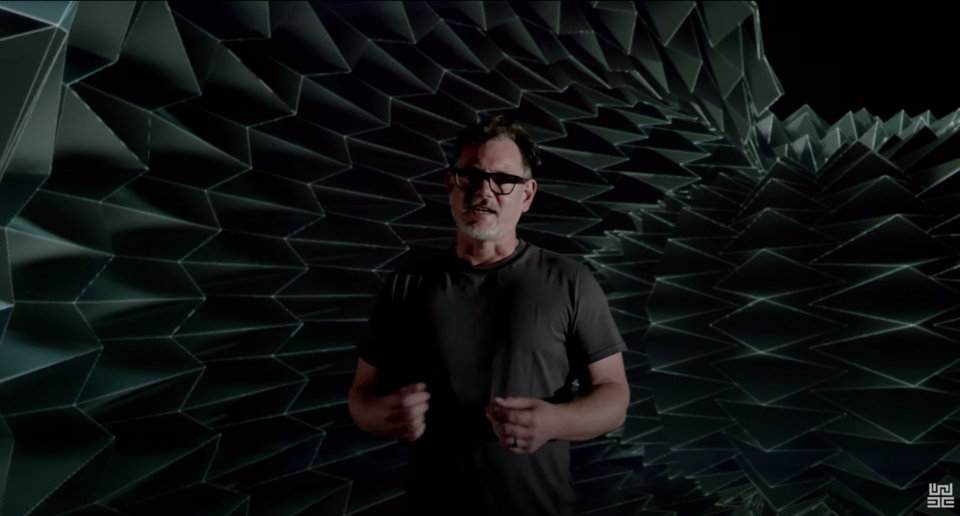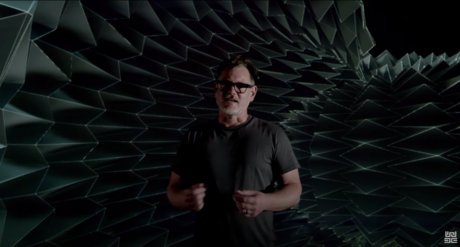
Inside Futurelab 25th Anniversary Series Episode 5 Computation and Beyond
Note: Matthew Gardiner presents from 6:04
How can we inspire people to actively and collectively design our future? This fifth episode of the Ars Electronica Futurelab’s 25th Anniversary Series, Computation & Beyond, addresses this far-reaching and highly important social question. Difficult or elusive content often requires a change of perspective in order to affect.
A wide variety of the lab’s ideas and concepts have found their way directly into the hearts and minds of audiences for 25 years now: art, creativity, random chance and even failures have been responsible for the most amazing results.
Matthew Gardiner and Marianne Eisl, both Artists and Key Researchers in the Ars Electronica Futurelab, present their approach to this issue using key exhibits from the lab's present and past: A gesture-controlled spherical labyrinth, a mirror that can transform gestures into an interactive experience, kinetic sculptures somewhere between robotics and origami, or shadow silhouettes of digitally captured bodies. Using innovative concepts at the crossroads between art, technology and society, they show that it takes much more than a machine can compute to create tangible links: It is about reducing complexity to handy bits of information in order to transform important issues into playful interactive experiences.
Credits:
Manuact Marianne Eisl, Marianne Eisl, Peter Freudling, Roland Haring, Anna Kuthan, Christopher Lindinger, Maria Mayr, Michael Mayr, Otto Naderer, Johannes Pöll, Erwin Reitböck, Clemens F. Scharfen
Shadow Gestures:
Marianne Eisl
Oribot:
Matthew Gardiner
The Folded Geometry of the Universe:
Matthew Gardiner
Deck 50:
Naturhistorisches Museum Wien
Stefan Mittlböck-Jungwirth-Fohringer
Marianne Eisl

How can we inspire people to actively and collectively design our future? This fifth episode of the Ars Electronica Futurelab’s 25th Anniversary Series, Computation & Beyond, addresses this far-reaching and highly important social question. Difficult or elusive content often requires a change of perspective in order to affect.
